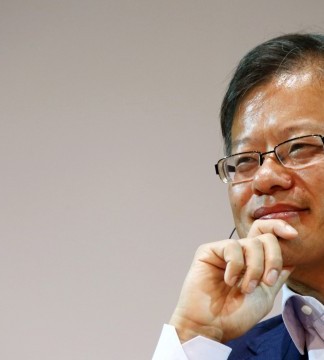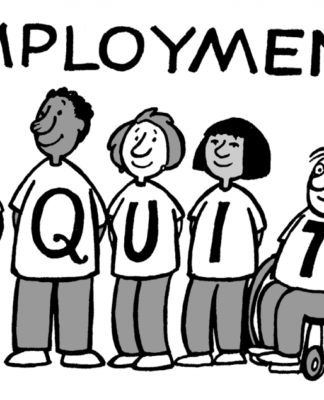28 Jan, 2024 01:08
HomeWorld News
The US creates crises around the world, then wants China to solve them
Washington likes to make others sort out its messes, but Beijing won’t play this game – and is thus branded a disruptive force
By Timur Fomenko, political analyst
The US creates crises around the world, then wants China to solve them
An armed demonstrator with a Palestinian and Yemeni flags at an anti-Israel and anti-US rally in the Houthi-controlled capital Sanaa on January 19, 2024 © Mohammed HUWAIS / AFP
The US and UK are currently waging a bombing campaign against the Ansar Allah militia group in Yemen, commonly known as the Houthis. The Houthis have been responding to the ongoing conflict in Gaza by attacking shipping lanes in the Red Sea, attempting to use the geopolitically critical Gulf of Aden to strangle one of the world’s most important commercial routes, and therefore escalating pressure on the West to end the conflict.
Of course, the US has been completely unreasonable in its unconditional backing of Israel’s military campaign, and rather than confronting the problem directly, it has proposed another idea – to outsource both blame and resolution to China and ask Beijing to help end the conflict. This is not a new tactic by Washington, as it has done the same thing with the Russia-Ukraine war, crafting a narrative that it is China’s “responsibility” to end it, of course, conveniently on terms that are favorable to America.
In reality, the US has absolutely no chance of getting China to end these respective conflicts, primarily because it is in China’s best interests not to secure outcomes that amount to geopolitical gains for America. However, that is the point in itself, as the US wants to intentionally frame Beijing as “the bad guy” and therefore push the perception that Beijing is a challenge to the international order and a threat to peace. The US is effectively trying to gaslight China by making it look morally bad for conflict Washington itself creates and not agreeing to the outcomes Washington wants. It is a blame game.
American foreign policy has little room for compromise and is driven by a zero-sum mindset that emphasizes absolute strategic gains for the US at all costs. The US does not negotiate with its adversaries for the sake of peace, but rather attempts to maintain a long-term strategic posture in the hope they, through pressure or other means, eventually capitulate to US preferences. For example, the US position regarding the Ukraine war has never been to negotiate with Russia or respect its strategic space but to attempt to impose a strategic defeat on Moscow and enable further expansion of NATO, which in turn is another vehicle for American pressure. Even as this approach is proving increasingly ineffective, there’s no shift in Washington’s foreign policy in sight.
Fuel tanker costs surge on Red Sea crisis – Bloomberg
Read more Fuel tanker costs surge on Red Sea crisis – Bloomberg
Similarly, the US has been happy to offer unconditional backing to Israel in its war in Gaza, despite claiming to push for peace. Washington has allowed the conflict to continue and avoided calling for a ceasefire at all costs. It then responds harshly to the instability the conflict creates, such as attacks from the Houthis. Logically speaking, Houthi attacks would stop if the US ended the conflict in Gaza, but that’s just how US foreign policy thinking works. There must never under any circumstances be concessions regarding the strategic status quo, only a doubling down on the current position with any options necessary. That’s the thinking that led Washington to scrapping the Iran nuclear deal and allowing a peace process with North Korea to collapse.
Now, the US is articulating a strategy whereby when conflict occurs, it tries to outsource responsibility by blaming the lack of peace on China. As the narrative generally goes, “If only China would act and stop this, then there would be peace,” whether it be in Gaza, Yemen, Ukraine, or wherever. Of course, that peace is strictly conditional on terms the US has set and not terms that China itself might want to set. If Beijing does press for peace but on alternative terms to what America wants, such as attempting to mediate in Ukraine rather than pushing for the collapse of Russia, those peace terms are quickly rejected and condemned by the mainstream media.
What we have is a no-win situation where Beijing is framed as a perpetuating, if not instigating, force in conflicts, no matter what it does. China is portrayed as actively preventing peace, or alternatively, enabling the “enemy” side to continue its perceived aggression and offering terms that favor said “enemy,” and therefore is complicit in antagonism towards the West. China is therefore made out as a threat to the international order and world peace unless it agrees to exactly what the US wants, which of course, logically works against the interests of China as a whole. Why, for example, would China agree to crippling Russia? Or turn against its strategic partner, Iran? This narrative always and deliberately ignores the role that the US has played in instigating, escalating, and perpetuating the given conflicts at hand and pushes the “good vs. evil” binary rather than acknowledging the complex realities of geopolitics.
In reality, China is always careful to explicitly take no sides in such conflicts and strives for balance, such as when it mediated between Iran and Saudi Arabia. However, for the US, which thinks only about zero-sum political gains as opposed to peace in the interests of all, this will never ever be acceptable. Therefore China remains a villain and a threat.
The statements, views and opinions expressed in this column are solely those of the author and do not necessarily represent those of RT.






























